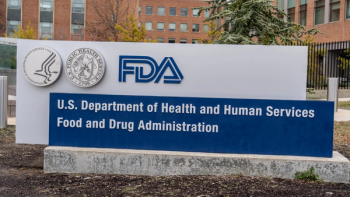
Regeneron Global Program Head of Linvoseltamab Discusses the Potential for Linvoseltamab to Become a Frontline Treatment for Multiple Myeloma
In an interview with Pharm Exec Associate Editor Don Tracy, Karen Rodriguez-Lorenc, Global Program Head of Linvoseltamab, Regeneron talks about the possibility of linvoseltamab becoming a frontline treatment for multiple myeloma (MM) as well as the company's VelociSuite technology.
PE: Do you believe that this treatment could eventually become a frontline treatment for MM?
Rodriguez-Lorenc: We are very encouraged by the data that we are observing in relapsed/refractory multiple myeloma, and the intentions are to transition into early lines of therapy. Currently, we have a Phase III trial. We are also evaluating in other conditions, so yes, the intentions are to transition into earlier lines of therapy.
PE: Can you discuss Regeneron’s VelociSuite Technologies and how that has bolstered ongoing research in hematologic malignancies?
Rodriguez-Lorenc: We have different kinds of platforms, including the VelociSuite technology, and I will focus more on that. So, VelocImmune is a technology that is helping us to produce optimized fully human monoclonal antibodies, which use a proprietary mouse platform engineered with a genetically humanized immune system to create a multitude of different antibody candidates that are efficiently and directly from immunized mice. This is helping us to produce a type of human monoclonal antibody that is not going to present all the challenges that some humanized antibodies have.
The other technology that we are using is Veloci-Bi. It’s a technology that allows us to generate a full-length bispecific antibody, similar to the native antibodies. Therefore, these are likely to have more favorable pharmacokinetic properties. We are applying the knowledge of three decades worth of biology expertise to develop medicines that help patients with different conditions including hematologic malignancies.
PE: Are there any other candidates in Regeneron’s oncology pipeline that you would like to highlight?
Rodriguez-Lorenc: We are very encouraged by all of this year’s findings. First of all, I would like to focus on linvoseltamab. Our regulatory filing was accepted and its currently under review. A final decision is expected on August 22, 2024. We are also in the process of review with the EMA.
We have multiple studies and as I mentioned before, we have Phase III trials, and we have a Phase II study that is being evaluated in high risk smoldering multiple myeloma and also monoclonal gammopathy of undetermined significance. Apart from these in the case of hematology, we are also developing odronextamab, which is our CD20xCD3 bispecifc in relapsed/refractory follicular lymphoma and in diffuse large B-cell lymphoma that is currently under review by the EMA. In the case of the FDA, we have discussions that are ongoing. Beyond that, some additional data is going to be presented at ASCO.
Newsletter
Lead with insight with the Pharmaceutical Executive newsletter, featuring strategic analysis, leadership trends, and market intelligence for biopharma decision-makers.



